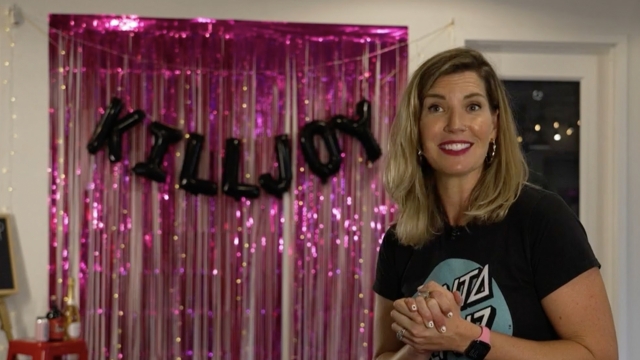Mocktails are gaining popularity, with young people increasingly choosing not to drink alcohol. There's also a growing movement of Americans who want to drink less alcohol. It's a cultural shift some are calling the "mocktail movement."
Stephanie Styll, the owner and founder of Killjoy, Nashville's only booze-free bottle shop, quit drinking alcohol in 2020, but said when she made the switch she couldn't find as many non-alcohol alternatives in stores. So, she decided to open her own.
"I just really wanted a place where you could go to find these and where somebody was knowledgeable about them and could help you, you know, kind of navigate this new terrain,"Styll said.
Styll said the store has about 30 different kinds of alcohol-free wine and more.
"We have spirits, we have all the spirits that you would traditionally use in a drink," Styll said. "So, if you wanted to swap out tequila, gin, rum, mezcal, whiskey, we have all of those."
While non-alcoholic beverages are produced without alcohol using natural flavoring, some products are dealcoholized, meaning the alcohol is removed using a process like reverse osmosis. Because there's no alcohol, many non-alcoholic products contain fewer to no calories and barely, if any, sugar. Prices for mocktails and non-alcoholic products are also nearly the same as regular alcoholic drinks.
SEE MORE: This city was ranked the drunkest in America — again
What's causing the shift? Younger people are drinking less than older generations, with many Gen Zers choosing to abstain from alcohol, focusing more on health and wellness.
According to a survey conducted by market researchers at NCSolutions, Gen Z respondents reported they "only have three drinks a week" compared to millennials and baby boomers who said they average five drinks a week. It also found 34% of Americans are trying to drink less alcohol in 2023.
According to the CDC, excessive alcohol use, which includes heavy drinking — for men that's 15 drinks or more per week, and for women eight drinks or more per week — can lead to long-term health risks like high blood pressure, liver disease, different types of cancer and memory problems. Not to mention mental health problems, including depression and anxiety.
"I think the amount of information that's come out in the past couple of years about how harmful alcohol actually is to your health, it's becoming hard to ignore," Styll said.
SEE MORE: Study finds Americans are drinking alcohol at sustained elevated rates
Styll said they see new customers walk in every day and that many are surprised that a store like this exists.
"Typically they're very excited about it, which I wouldn't expect just any random person to be that excited about it," Styll said. "So that is real evidence to me that the culture is shifting, especially amongst young people."
Catherine Lundquist decided to cut alcohol out of her life and is now five months sober.
"It has been incredible. It has been thrilling, exhilarating, exhausting and terrifying," Lundquist said. "And I'm here for all of it. It has shown me a lot of things that were missing in my life that I was using alcohol to mask.
Lundquist said she's grateful a place like Killjoy exists.
"Just because you have to have a drink in your hand doesn't mean that it has to be booze, you know?" Lundquist said.
Trending stories at Scrippsnews.com




